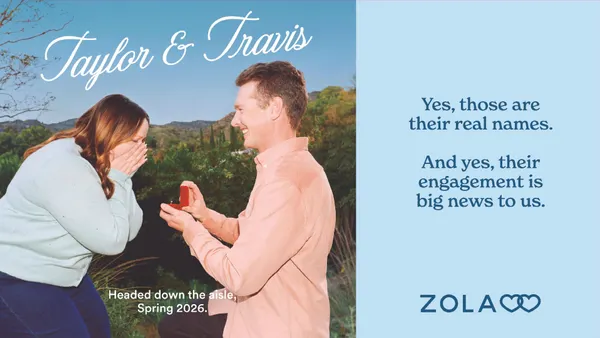Dive Brief:
- Burger King launched "Chick Fries," a Chicken Fries variant targeted at women that comes in a pink box and cost $3.09 versus the regular $1.69 for the menu item, per a news release. The stunt is the fast-food chain's attempt to explain the "pink tax," which refers to products marketed to women that usually cost more than those marketed to men.
- Burger King released a YouTube video that shows women ordering Chicken Fries and being given "Chick Fries" and charged more. The video captures their angry reactions and ends with a message encouraging support for the pink tax repeal and the website CallMyCongress.com.
- Pink Chick Fries boxes were available for a limited time in select locations in Miami, New York City, Los Angeles, San Francisco and Chicago for the same price as regular Chicken Fries.
Dive Insight:
"Chick Fries" is Burger King's latest effort to illustrate political and social issues through a sort of guerrilla marketing, and mirrors a similar campaign it ran in January to highlight the then hotly-debated repeal of net neutrality. The prior "Whopper Neutrality" push, which also included secretly-filmed reaction videos at restaurant locations, showed how people who paid the regular price for burgers would have to wait longer for their orders than those who paid more for faster service, reflecting how internet service providers could intentionally throttle broadband coverage for lower-paying subscribers without the protections of net neutrality.
By showing how the Pink Tax works in a similar setting, Burger King is aiming to raise awareness about the potentially unfair price hikes that come attached to products marketed at women and send the message that it values quality equality. The strategy risks negative reactions from consumers who don't believe in the Pink Tax to begin with — the YouTube video is full of dislikes and angry comments to this tune — but might still earn Burger King positive earned media coverage.
Burger King has in recent years tried to inject more personality into its marketing and position its brand as being disruptive. At the Cannes Lions advertising festival in June, representatives from the chain and its ad agency David described their strategy as "hackvertising," or hacking into trending cultural moments by non-traditional and often intrusive means. While some of these efforts have annoyed consumers, the company claimed it has generated more than 30 billion impressions, collectively, over the past four years.
Almost 70% of consumers also now expect brands to support political and social causes that are important to them, including subjects like civil rights and race relations, according to a study by Sprout Social.












